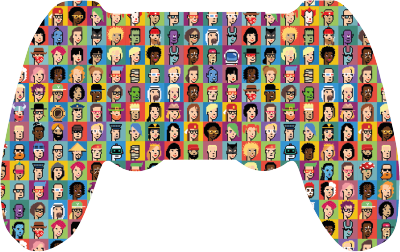Call for Papers
This conference call hence builds on the premise that to understand the significance of digital games and gaming in a deeply mediatized society we need to look beyond play, i.e., the contents of games and the interaction with games alone. We call to go beyond reducing games to mere playing, examining their placement and connection within digital media environments as gamevironments to research how our communicative practices and their contexts transform through games, as well as how these games are reshaped through communicative practices. A perspective that goes beyond play indicates that researching games and gaming also allows for insights into the deepening of the mediatization and datafication of society.
Submit your Abstract by June 30th!
Day(s)
:
Hour(s)
:
Minute(s)
:
Second(s)

Call for Papers
Digital Games and gaming are carriers, accelerators and subjects of change in media culture and society. In this capacity they serve as an interlink between media industries, digital technologies, media cultures, and social practices, making them ideal cases to analyze contemporary transformation processes in the context of (deep) mediatization, digitalization, and datafication.
This conference call hence builds on the premise that to understand the significance of digital games and gaming in a deeply mediatized society we need to look beyond play, i.e., the contents of games and the interaction with games alone. We call to go beyond reducing games to mere playing, examining their placement and connection within digital media environments as gamevironments to research how our communicative practices and their contexts transform through games, as well as how these games are reshaped through communicative practices. A perspective that goes beyond play indicates that researching games and gaming also allows for insights into the deepening of the mediatization and datafication of society.
It is quite obvious to consider digital gaming a central aspect of the spread of digitalization in virtually all areas of social life: Computer and console games, as well as mobile games, are now an integral part of deeply mediatized lifeworlds across generations. They have become one of the dominant sectors in the media industry in terms of economic relevance and ubiquity. Games and gaming have been catalysts for the emergence of unique media cultures, playing a crucial role in mediatized everyday culture for several generations of players. Game development has become well-established and professionalized, fostering innovative forms of media expression, communication contexts, and peripheral media (e.g., video game journalism, game streaming, fan-fiction, modding). Additionally, under the concept of gamification, principles of gaming and playful elements are increasingly transferred to non-gaming contexts (e.g., health prevention, educational settings). This positions computer games and gaming as a comprehensive subject of research in communication and media studies as well as an indicator for transformation processes in media, culture and society that extend the scope of gaming.
We invite submissions that explore the transformative power of digital gaming in deeply mediatized society, how gaming shapes mediatization, digitalization and datafication of society and how games and gaming are conversely shaped by the same processes. We invite conceptual, theoretical and methodological contributions as well as empirical studies from all disciplines.
Abstracts (350-500 words) for all formats should be submitted by email as an anonymized pdf-file no later than 30.6.2024 to beyondplay2024@uni-bremen.de.
An additional file should include title, four to six keywords, name of author(s), institutional affiliation, and contact details for each author. All submissions will undergo double blind peer review. Authors will be notified of proposal acceptance/rejection by July 14th 2024.

